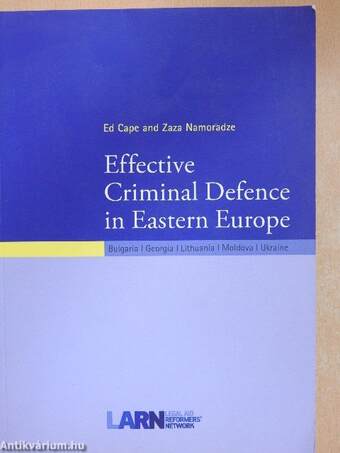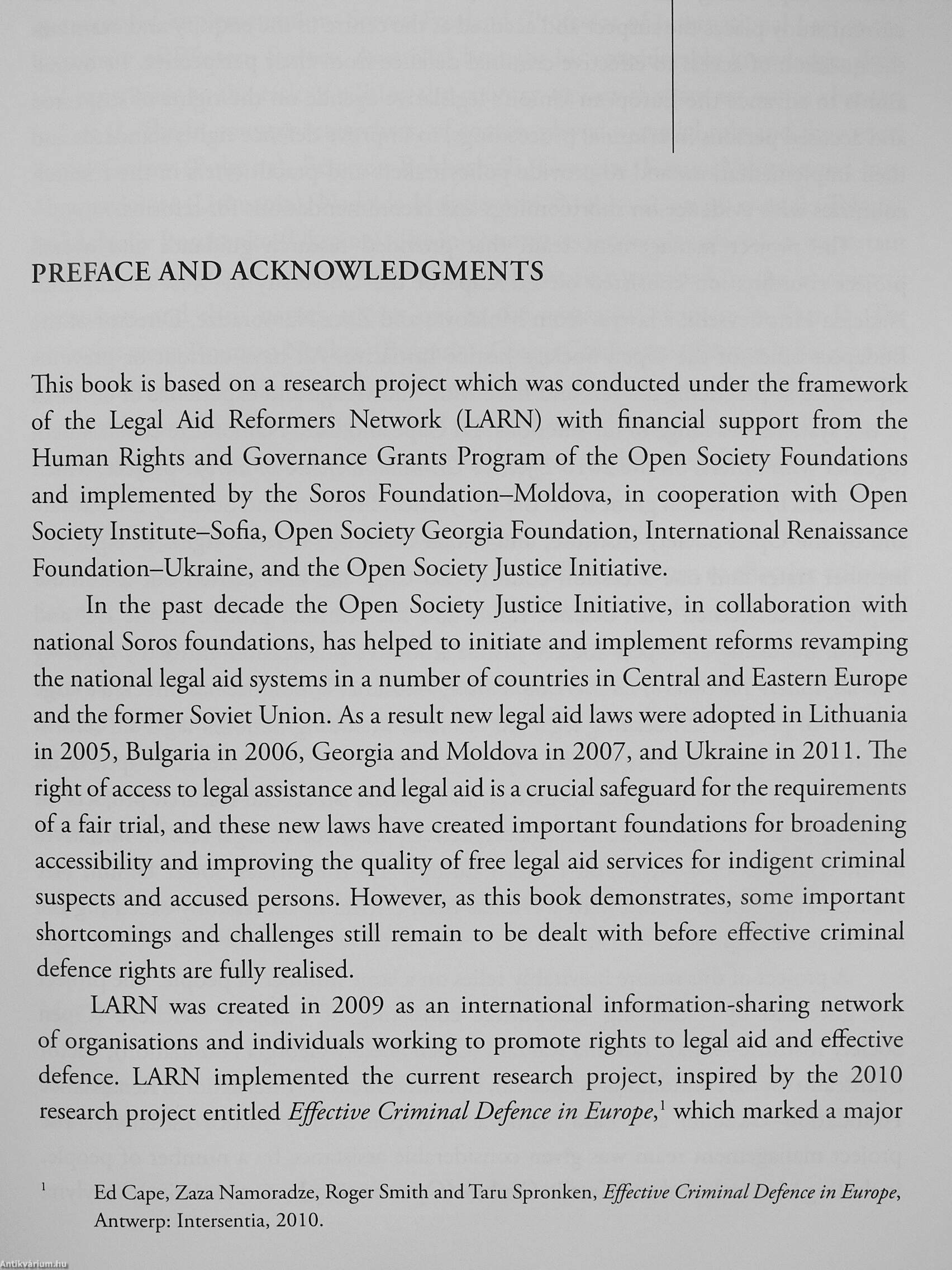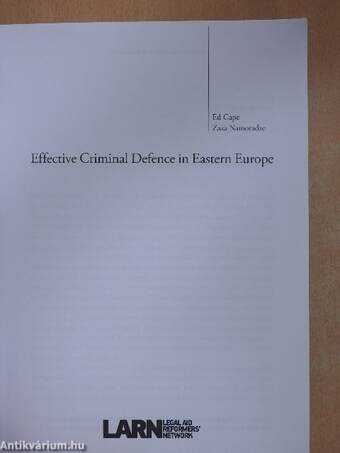1.067.053
kiadvánnyal nyújtjuk Magyarország legnagyobb antikvár könyv-kínálatát

VISSZA
A TETEJÉRE
JAVASLATOKÉszre-
vételek
Effective Criminal Defence in Eastern Europe
| Kiadó: | Legal Aid Reformers' Network |
|---|---|
| Kiadás helye: | |
| Kiadás éve: | |
| Kötés típusa: | Ragasztott papírkötés |
| Oldalszám: | 500 oldal |
| Sorozatcím: | |
| Kötetszám: | |
| Nyelv: | Angol |
| Méret: | 24 cm x 17 cm |
| ISBN: | 978-963-9719-10-1 |
naponta értesítjük a beérkező friss
kiadványokról
naponta értesítjük a beérkező friss
kiadványokról
Előszó
TovábbFülszöveg
This book is devoted to criminal defence in Eastern Europe, based on a research project conducted in Bulgaria, Georgia, Lithuania, Moldova and Ukraine during 2010 and 2011. The research relied on the methodology originally developed for a three-year research study on access to effective defence in criminal proceedings across nine European jurisdictions (Belgium, England ft Wales, Finland, France, Germany, Hungary, Italy, Poland and Turkey), the results of which were published in 2010 in a book entitled Effective Criminal Defence in Europe.
The research was conducted under the framework of the Legal Aid Reformers' Network (LARN), with financial support from the Human Rights and Governance Grants Program of the Open Society Foundations. The project was implemented by the Soros Foundation-Moldova, in cooperation with Open Society Institute-Sofia, Open Society Georgia Foundation, International Renaissance Foundation-Ukraine, and the Open Society Justice Initiative.
The book starts... Tovább
Fülszöveg
This book is devoted to criminal defence in Eastern Europe, based on a research project conducted in Bulgaria, Georgia, Lithuania, Moldova and Ukraine during 2010 and 2011. The research relied on the methodology originally developed for a three-year research study on access to effective defence in criminal proceedings across nine European jurisdictions (Belgium, England ft Wales, Finland, France, Germany, Hungary, Italy, Poland and Turkey), the results of which were published in 2010 in a book entitled Effective Criminal Defence in Europe.
The research was conducted under the framework of the Legal Aid Reformers' Network (LARN), with financial support from the Human Rights and Governance Grants Program of the Open Society Foundations. The project was implemented by the Soros Foundation-Moldova, in cooperation with Open Society Institute-Sofia, Open Society Georgia Foundation, International Renaissance Foundation-Ukraine, and the Open Society Justice Initiative.
The book starts with an analysis of the key requirements and standards concerning effective criminal defence according to the European Convention on Human Rights, the case law of the European Court of Human Rights, and legislation under the European Union's procedural rights 'roadmap'. Each country in the study is the subject of a separate chapter describing and analysing laws, institutions, processes, practices and attitudes relating to effective criminal defence, and concluding with recommendations for improving access to effective defence as an essential element of the right to fair trial. The data from the five countries is then subjected to a cross-jurisdictional analysis of compliance with European standards including, where relevant, reference to the findings of the original nine country study.
m
Overall, the study reported in this book provides a unique comparative account and analysis of criminal defence rights in the five jurisdictions, all of which have acceded to the ECHR, and two of which are member states of the EU. It is hoped that the book will not only provide useful information for further standard setting within the European Union and the Council of Europe, but also will assist policymakers and practitioners in the development of practical mechanisms to ensure access to effective criminal defence to all who need it across Europe.
LARN is an international information-sharing network of organisations and individuals working to promote the right to legal aid and effective defence. LARN builds on the experience of the Open Society Justice Initiative, which has been promoting legal aid reforms and created an informal network of public defenders and legal aid managers across Europe and globally. The Network provides a virtual platform for policymakers and legal practitioners to exchange experiences and to collaborate in further developing newly created legal aid systems. LARN is open to any interested organisations and individuals. More information about LARN is available at www.legalaidreform.org. Vissza




















